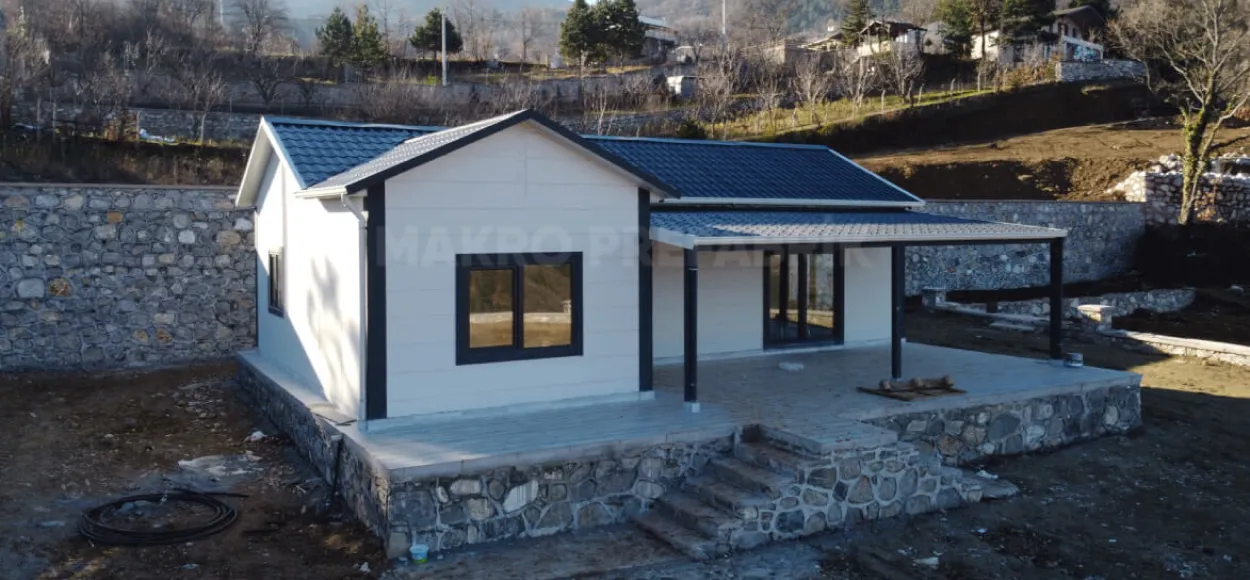
Portable vineyard houses are becoming increasingly popular due to their aesthetics, durability, and longevity. Whether you're an individual seeking a peaceful retreat or a company, you can invest in a sustainable prefabricated vineyard house model. However, before discussing a specific foundation, it's important to understand why we might want to purchase a vineyard house. Here are some reasons:
Durability: These houses are built to withstand all weather conditions. Thanks to the durable materials used, they ensure longevity regardless of external factors.
Affordability: Generally, these houses are cheaper than traditional, concrete structures. The production process is simpler, which means the labor and time spent on production are relatively lower.
Eco-Friendly: These homes are typically made from sustainable materials. Less waste is produced during construction.
Quick Construction: Since the parts are manufactured off-site in a factory environment, production is fast, allowing you to move into your dream home much sooner.
The foundation of a prefabricated vineyard house is extremely important for several reasons. The foundation supports the entire structure placed upon it, providing strength and durability. First, proper site preparation should be done, which includes clearing the land and removing surface debris. Once strong site preparation is completed, a foundation can be built at any time with minimal issues in the future. The foundation can vary depending on soil conditions and, of course, the house's design. However, simple and more cost-effective foundations are often preferred by homeowners.
Another factor to consider is that high-quality materials should be used to ensure the foundation’s longevity. Concrete is commonly used due to its durability and long service life. The use of steel or iron reinforcements increases the foundation’s capacity to bear different and dynamic forces. Additionally, if the vineyard house is located in an area with heavy rainfall or near a water source, this aspect should be taken seriously. Protecting the foundation from moisture is essential to prevent water damage and mold. This allows the house to be used for many years without the need for major maintenance. Proper insulation of the foundation increases comfort inside the house. Any insulation that softens the indoor temperature also provides energy savings.
Considering the strength of a good foundation, there are several advantages to owning a house. The first advantage is that these homes are built with energy efficiency in mind. Energy efficiency means that the house is well-insulated. Since fewer heaters or air conditioners will be needed in an insulated house, this results in energy savings. Insulation typically covers the walls and ceilings of the house. High-quality insulation includes energy-efficient windows and doors.
Prefabricated homes require much less maintenance than on-site-built homes. All materials are protected from pests, decay, and corrosion, ensuring that your home stays in pristine condition and reduces maintenance costs. Additionally, prefabricated bungalow models are produced in the same way, ensuring durability and longevity. These homes can also be designed with a range of customization options to achieve the desired aesthetic appeal. There are many different designs, from modern minimalist styles to rustic designs. These homes are not only durable and energy-efficient but also have good resale value. They are seeing significant demand in the real estate market with each passing day.